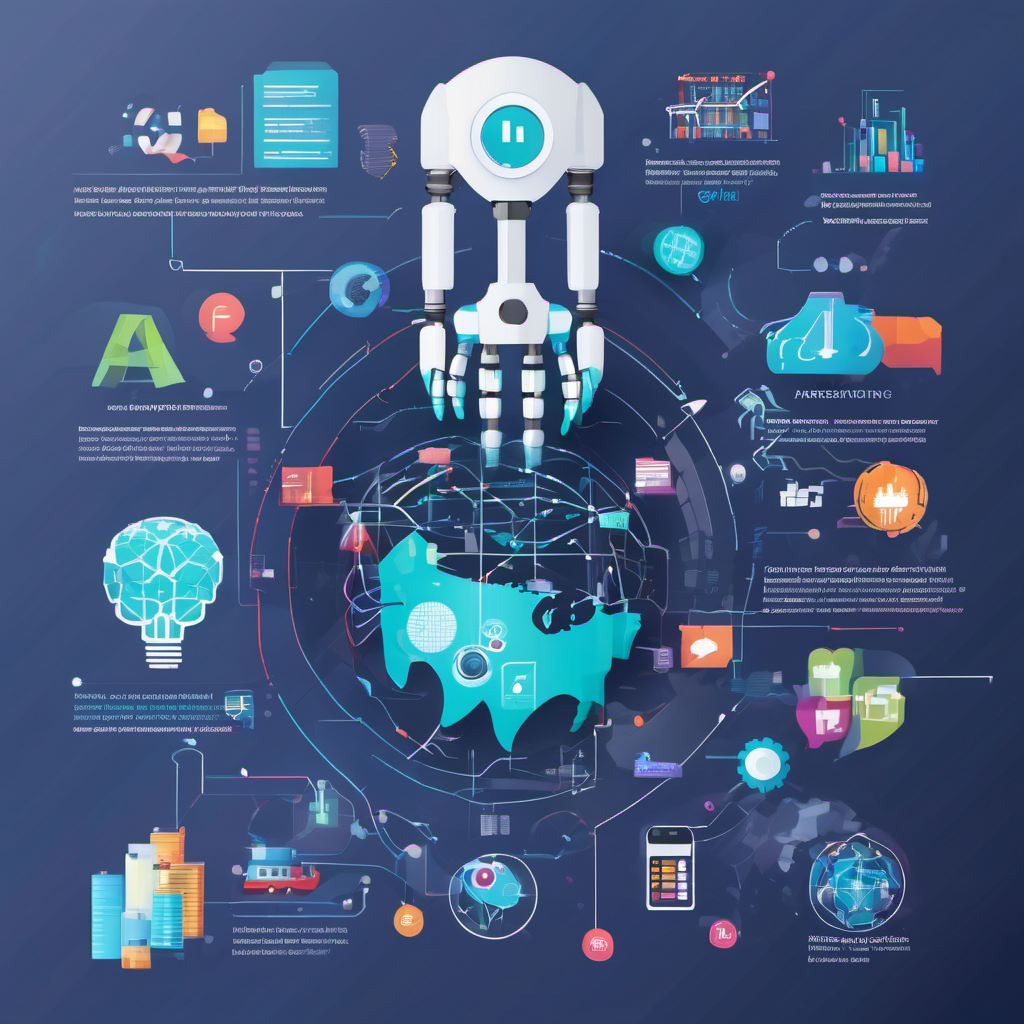
AI is revolutionizing healthcare through advanced diagnostics, personalized medicine, and efficient drug discovery. AI algorithms analyze medical images with high accuracy, facilitating early disease detection. Personalized treatment plans are developed using AI models that consider patients' genetic makeup and medical history. Furthermore, AI accelerates drug discovery by predicting compound interactions, significantly reducing the time and cost involved in bringing new drugs to market.
AI enhances the financial sector by improving fraud detection, algorithmic trading, and customer service. AI systems analyze transaction patterns to prevent fraud in real-time. In investment, AI-driven algorithms process vast amounts of financial data to optimize trading strategies. Additionally, AI-powered chatbots and virtual assistants provide efficient, personalized customer support.
In retail, AI personalizes customer experiences and optimizes operations. E-commerce platforms use AI to analyze user behavior and preferences, offering tailored product recommendations. AI-driven inventory management systems predict product demand, reducing waste and improving supply chain efficiency. AI also assists in dynamic pricing strategies by analyzing market trends and competitor pricing.
AI is transforming transportation through the development of autonomous vehicles, improved traffic management, and optimized logistics. Companies like Tesla and Waymo are advancing self-driving car technologies, enhancing safety and efficiency. AI systems analyze traffic patterns to optimize flow, reducing congestion and emissions. In logistics, AI optimizes routing for deliveries, ensuring timely arrivals and reduced fuel consumption.
AI-powered platforms provide personalized learning experiences, adapting content to individual student needs. Automated grading systems offer quick feedback, allowing educators to focus on teaching. AI-driven translation tools make educational resources accessible globally, breaking down language barriers.
AI is reshaping the entertainment industry by facilitating content creation and enhancing user experiences. AI generates music, art, and articles, expanding creative possibilities. Streaming services like Netflix and Spotify use AI to recommend content based on user preferences. In gaming, AI enhances gameplay by creating intelligent non-player characters and optimizing game design.
In manufacturing, AI improves efficiency and precision through predictive maintenance, quality control, and robotics. AI predicts machinery maintenance needs, preventing breakdowns and reducing downtime. Quality control systems powered by AI detect defects with high accuracy. AI-driven robots perform complex tasks, enhancing manufacturing processes.
AI enhances customer service with virtual assistants and chatbots. AI-powered virtual assistants like Siri, Alexa, and Google Assistant perform tasks and provide information through voice commands. AI chatbots handle customer inquiries on websites and apps, offering instant support and reducing the workload for human agents.
AI bolsters security through advanced cybersecurity measures and surveillance systems. AI detects and responds to cyber threats in real-time, protecting systems and data. AI-powered surveillance analyzes video feeds to detect suspicious activities, enhancing public safety.
AI contributes to environmental sustainability by improving climate modeling, wildlife conservation, and sustainable practices. AI enhances climate models, improving predictions and informing mitigation strategies. AI monitors wildlife populations and tracks illegal activities like poaching. AI also optimizes energy usage, waste management, and resource allocation, promoting sustainability.
Despite its benefits, AI presents challenges and ethical considerations, including bias and fairness, privacy, job displacement, and transparency. Ensuring AI systems are unbiased, protect user data, and maintain transparency is crucial. Strategies for workforce transition and retraining are necessary to address job displacement due to automation.
The future of AI holds exciting possibilities with ongoing research in areas such as General AI, Quantum AI, and AI Ethics. Efforts to create AI with human-like intelligence, combining quantum computing with AI for complex problem-solving, and developing ethical frameworks will shape the future of AI development and deployment.




 Together!
Together! Ready to elevate your presence? Get in touch us today
for
personalized
solutions tailored to business needs.